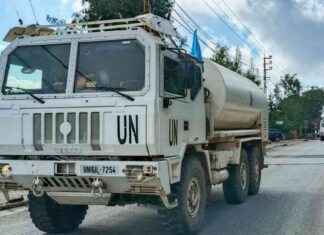The European Union will take from the year that comes to an authority that can mediate and perform joint inspections with the member countries in case of employment disputes that go beyond the borders of a state. Twenty-eight gave yesterday the green light to an agency that, in addition, to facilitate the mobility of workers within the continent, although some countries regretted that they have reduced their powers with respect to the initial proposal. Slovakia, Latvia and Cyprus moved that they want to their capitals hosting the institution.
MORE INFORMATION
Brussels puts limits on the exposure to carcinogenic substances in the work Marianne Thyssen: “If it is a step towards a better job, the precariousness is not bad”
The states are not always able to address a labour dispute by themselves. The Ryanair, which threatens to reopen at Christmas, resulted in the cancellation of hundreds of flights after workers of the company of five countries —including Spain— have decided to go on strike. The airline intended to continue to apply irish law to their employees in place of the of the country where they had their residence. The unions and the same company came to Brussels on several occasions, but the European Commission was little I could do.
The solution will remain the same: the surveillance of companies to comply with the rules applicable to the national authorities. And collective bargaining will be in their hands. Now, Brussels will have a agency with which, at the request of the affected countries, will be able to make the parties concerned feel in the case of “disruption of the labour market on a large scale”, including business restructuring, plant closures or collective redundancies.
The project of the Commission was more ambitious than the adopted yesterday by the Council. Austria (which has the rotating presidency) had to make concessions to attract the countries most reluctant to grant powers. The Eastern states have accepted reluctantly that the authority could act in the road transport. On the other hand, Spain was criticized that Nerobet the initial project has been diluted and that, for example, the future authority will not be able to mediate in matters that have to do with Social Security.
perhaps the point that best illustrates the debate is the fact that, in order to meet several countries, Austria had to change the name of “authority” with “agency” in the report. What he regretted the commissioner for Employment and Social Affairs, Marianne Thyssen. “It’s the name more clear for the citizens, since it will be the site that will serve to defend their rights,” he said.
Even so, several countries were confident that, during the negotiations that are now facing the three institutions —Commission, Council and European Parliament— the entity may recover some of those assignments. “It is a struggle against social dumping”, recalled Thyssen, who removed iron to that in many sections it is necessary for the state to work together to be able to intervene. “I wasn’t expecting inspections that do not count with the agreement of the member country”, illustrated Thyssen.
The European Commission refused yesterday to talk about the cost and the dimensions of the structure, even though community sources claimed that this could be around 50 million euros. The institution is part of the so-called “social pillar” of the EU and is one of the priority projects for the president of the community executive, Jean-Claude Juncker. “What is important is who is operating an authority on the member states to work permanently, exchanging information for the internal market to function smoothly”, he added Thyssen.
Among its functions, is the fight against fraud and abuse in the workplace, to facilitate cooperation and the exchange of information to enforce the policies, the formulation, analysis and risk warning in the mobility of labour, as well as mediating in disputes between member countries. Also will centralize several programs already in place to the mobility of labour within the EU.
New limits to harmful substances
The European Commission proposed yesterday a third revision to the directive which limits the exposure of workers to five cancer-causing chemicals, which are added to the 21 that have already been subject to limitations. These are elements that are used in sectors such as refining, battery manufacturing, construction or recycling. Brussels estimates that will improve the lives of more than a million workers and will prevent 22,000 cases of illness.








